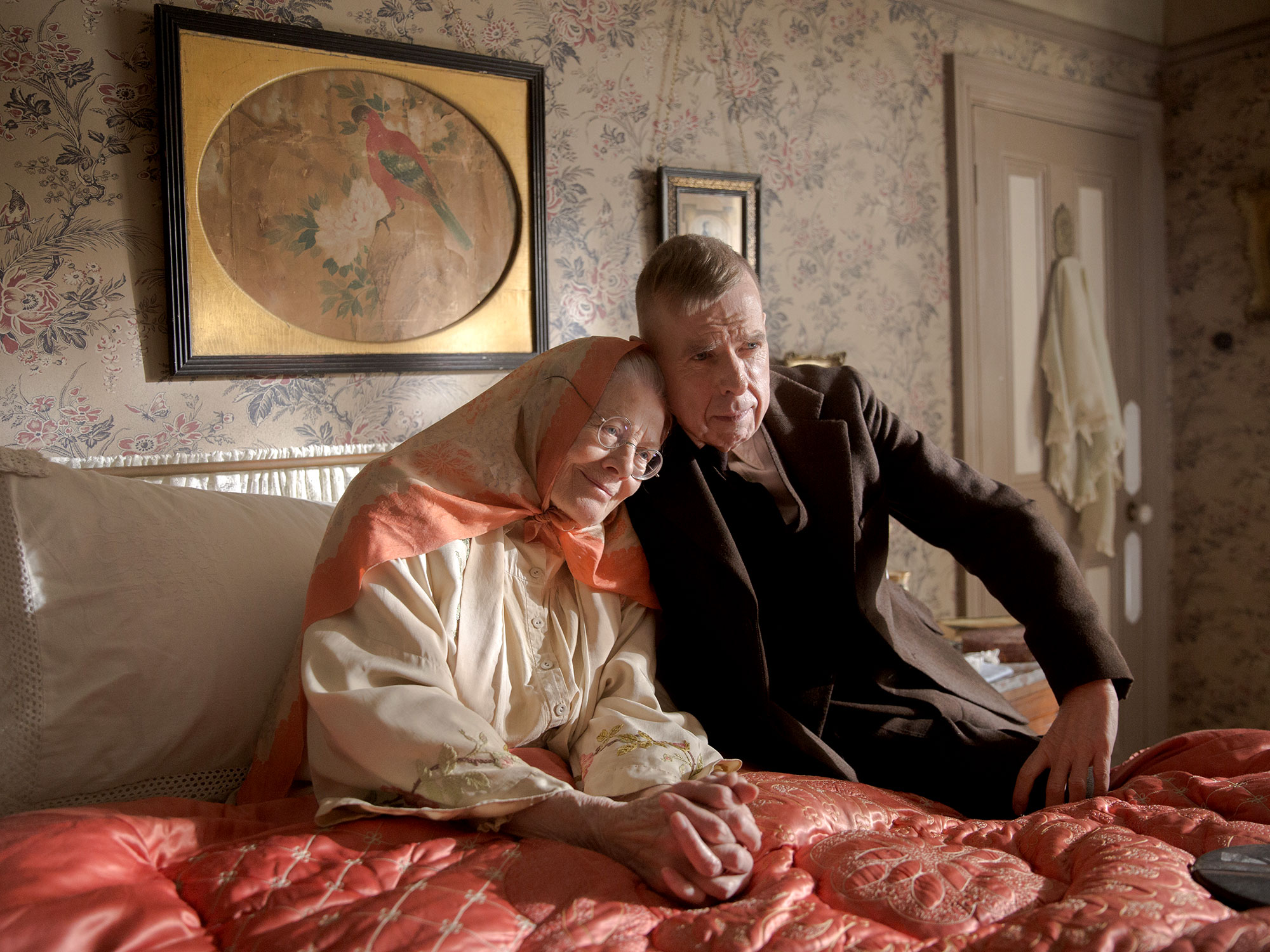
An emotionally abusive relationship lies at the heart of Adrian Noble’s biopic of one of Britain’s most-loved painters, LS Lowry. In the vein of a psychological drama, the narrative centres around the intimate yet tempestuous relationship between mother and son, set against the backdrop of industrial Greater Manchester in the mid-1930s.
Lowry is played by Timothy Spall, who previously brought JMW Turner to life in Mike Leigh’s Mr Turner. A solitary, unmarried man in his forties, Lowry still lives with his mother in a small terraced house in Pendlebury. By day he is a rent collector, by night he paints alone in an attic studio. He paints the mills, factories and workers of Salford, the artist’s famous ‘matchstick men’, all of which he imbues with a melancholic, bleak beauty.
Opposite Spall, Vanessa Redgrave, plays Lowry’s begrudging, invalid mother Elizabeth. Reading the critics’ negative reviews of her son’s work, she is equally ashamed of Lowry as she is reliant upon him for survival. Not wanting to be reminded of her descent on the class ladder – from a refined, middle-class background in leafy Victoria Park, Manchester, to one of virtual poverty amongst a working-class community – Elizabeth tells her son that she loathes his paintings of the industrial landscape.
Disappointed with her life and intolerant of failure, she projects her frustrations onto her only son. In this respect, the film brings into sharp focus British class divisions that were particularly pronounced during the interwar years. Yet despite being a rather monstrous character, Elizabeth’s acerbic wit keeps the dialogue interesting.
Created by Salford-born writer Martyn Hesford, first as a radio play, the dialogue is seamlessly natural and compelling, interspersed with northern humour. Surprisingly, the film doesn’t become claustrophobic, though it is largely filmed in one room. This is arguably a reflection of the actors’ brilliance, but also a sign that Noble has directed extensively for the stage, once being the director of the Royal Shakespeare Company.
An against-the-odds story about an artist finding unexpected success, Lowry’s paintings become a metaphor for his complex familial relationship. An enigmatic and complicated figure, he oscillates between rebellion and obedience as struggles to free himself from Elizabeth’s emotional hold, while he comes to term with the fact that the artistic establishment desires his paintings. The very friction between mother and son compels Lowry to paint; fuelling his stubborn desire to depict the smoky, grey, manufacturing landscape.
By the end of the film, the powerful irony is that despite Elizabeth’s constant abuse and disavowal of her son’s talent, Lowry will ultimately become one of Britain’s richest and most loved artists.
The post Mrs Lowry & Son appeared first on Little White Lies.
![Forest Essentials [CPV] WW](https://s3-us-west-2.amazonaws.com/pcw-uploads/logos/forest-essentials-promo-codes-coupons.png)
0 comments